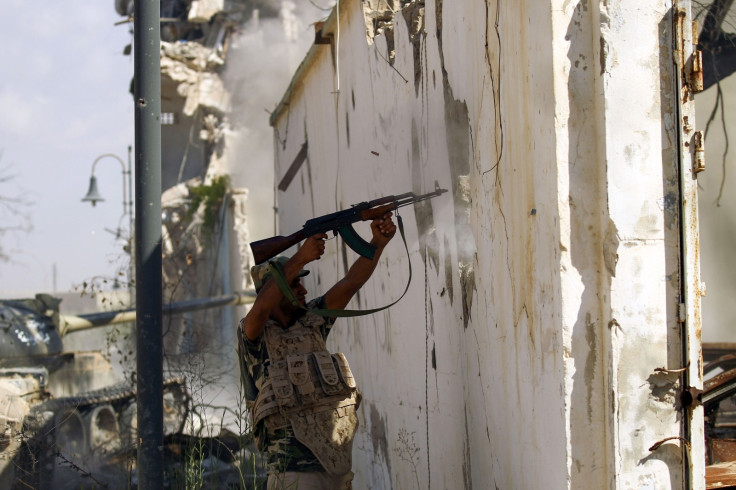Video purports to show ISIS fighters summarily executed by Libyan forces
The unverified video is said to occur around the time UN officials called for investigations into executions.

A video circulating on the internet is purported to show ISIS fighters in Libya being executed in a way not unlike ISIS's own execution videos.
The video reportedly dated 17 July shows 18 people in orange jumpsuits lined up on their knees and shot at point-blank range by men with what appear to be semi-automatic weapons.
Al Jazeera reported that the video was posted online on Sunday (23 July) and that a man who appeared to be giving order in the footage was Mahmoud al-Werfalli - a senior member of the Libyan National Army (LNA), currently led by General Khalifa Haftar.
The video has not yet been independently verified.
Human Rights Watch have called for an investigation into the scenes and the dismissal of any personel involved.
"This latest mass execution, if confirmed, would be one more in a string of atrocities committed by members of the Libyan National Army forces and is yet another manifestation of how its members are taking the law into their own hands," deputy director for Middle East and North Africa told Reuters.
The LNA and al-Werfalli was named in a statement from the Office of the UN High Commissioner on Human Rights on 18 July. Spokesperson, Liz Throssell told reporters: "Our concern is based on reports suggesting the involvement of the Special Forces, a unit aligned with the LNA [Libyan National Army], and in particular their field commander, Mahmoud al-Werfalli, in torturing detainees and summarily executing at least 10 captured men,"
"We urge the LNA to ensure there is a full, impartial investigation into these allegations and also call on the group to suspend Mr. al-Werfalli from his duties as a Special Forces field commander pending the conclusion of such an investigation," Throssell said.
She added: "The fight against terrorism cannot be used to justify summary executions or other grave violations of international human rights law and international humanitarian law."
© Copyright IBTimes 2024. All rights reserved.






